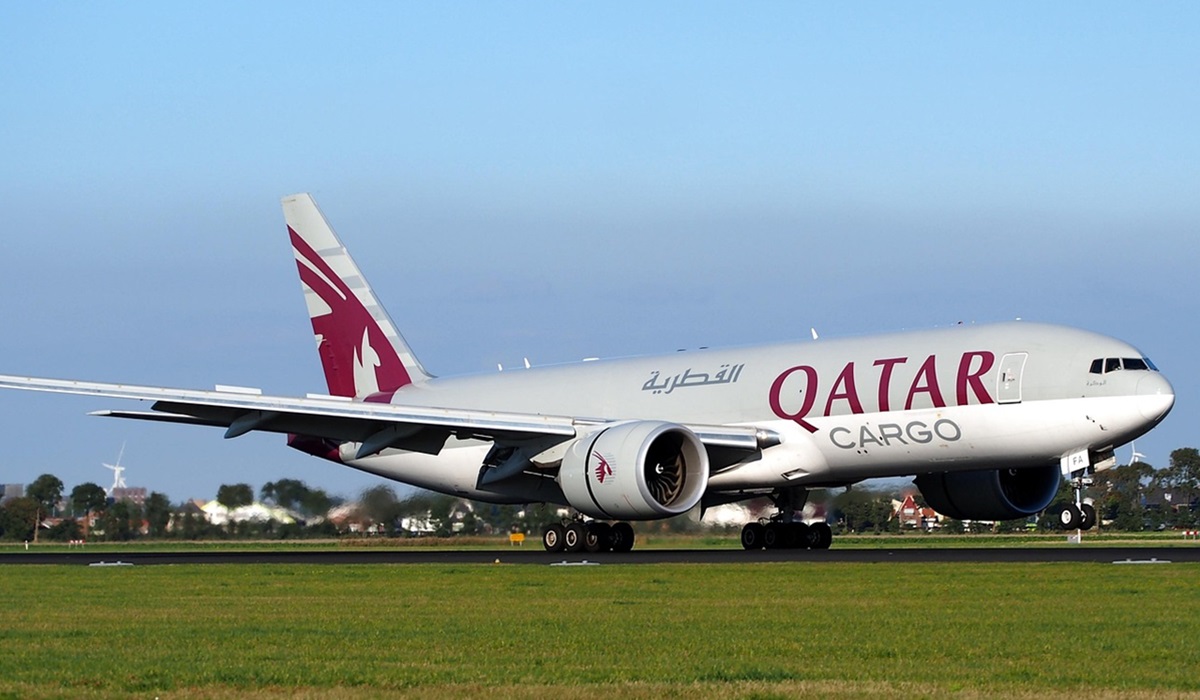Qatar’s Breaking Point: How a U.S.-Backed Strike Risks Triggering a $150 Billion Economic Catastrophe
- TDS News
- Breaking News
- September 15, 2025

By: Donovan Martin Sr, Editor in Chief
Image Credit: WikimediaImages
For decades, Qatar has stood as one of Washington’s most reliable partners in the Gulf. The relationship was cemented not only by defence cooperation, including the hosting of Al Udeid Air Base, but also by an interwoven economic partnership that saw billions of dollars in trade and energy flowing between the two nations. Boeing and ExxonMobil became cornerstones of this relationship, benefiting from Qatar’s vast purchasing power and natural gas wealth. Yet today, that partnership appears to be unravelling at an alarming pace.
Emerging reports from Doha indicate that Qatar is seriously considering the cancellation of its $150 billion aircraft order with Boeing, a contract that has long been viewed as one of the most valuable foreign deals in U.S. commercial aviation history. At the same time, discussions have reportedly begun over whether ExxonMobil and other American energy companies should be sidelined or forced out altogether from the Qatari market. While the economic implications alone would be enormous, the political catalyst is what makes this development explosive. According to multiple insiders, the Trump administration gave a greenlight to Israel’s recent strike on Qatari-linked interests. For Doha, this was not just an affront; it was a betrayal of sovereignty that may be impossible to forgive.
The Boeing contract underscores the stakes. Analysts have projected that the deal would support up to 250,000 high-paying jobs across the United States. Thousands of suppliers and manufacturers in states like Kansas, Washington, and South Carolina are tied to Boeing’s production line, meaning the ripple effects of cancellation would be felt across America’s industrial heartland. For Boeing itself, already battered by years of safety scandals, grounded fleets, and production delays, the loss of such a massive contract could prove devastating.
The energy sector carries equally high risks. Qatar sits atop one of the largest natural gas reserves on the planet, and ExxonMobil has for decades enjoyed privileged access. The revenues are counted in billions, feeding not just corporate balance sheets but America’s geopolitical influence in the region. If Qatar were to push ExxonMobil aside, those contracts would not vanish; they would shift, most likely toward firms from Asia and the BRICS bloc, who have been eagerly expanding their reach in the Gulf. The financial damage to U.S. companies could extend far beyond ExxonMobil, undermining America’s energy footprint at a time when competition for market dominance is fiercer than ever.
The broader context is critical. This is not the first time the Trump administration has overseen actions that eroded U.S. credibility abroad. American farmers once dominated global exports of soybeans, corn, and wheat until tariff wars shut them out of key markets. The U.S. semiconductor sector has struggled to keep pace as protectionist policies disrupted supply chains while rivals in Asia consolidated power. Now, with Boeing and ExxonMobil facing the prospect of losing one of their most lucrative partners, another pillar of U.S. industry is at risk of crumbling. But unlike tariffs or domestic blunders, the decision to approve an Israeli strike on Qatar strikes at something more fundamental: trust.
For a small but wealthy nation like Qatar, security and sovereignty are paramount. The U.S. was long viewed as a guarantor of both. If Washington is now perceived as complicit in enabling a strike against Doha’s interests, the rationale for continuing to pour billions into American contracts weakens dramatically. A nation does not buy jets or sign energy deals with a partner it believes has facilitated an attack on its sovereignty.
In previous decades, Qatar might have had no real alternative. The U.S. dominated global aerospace, and its energy companies had unmatched reach. But the landscape has shifted. China’s state-backed COMAC aviation program has emerged as a rival to Boeing and Airbus, and its C919 jet has already entered commercial service. In the energy sector, BRICS nations are deepening ties across the Gulf, offering investment and political support that come without the baggage of American entanglements. For Doha, moving away from Boeing and ExxonMobil would not be a leap into uncertainty, but a strategic realignment with rising powers that increasingly appear to offer both economic and political security.
The consequences for the United States would be profound. A cancelled Boeing deal would not just destabilize one company; it would send shockwaves through the manufacturing economy and imperil hundreds of thousands of jobs. ExxonMobil’s removal would strip the U.S. of a central role in one of the world’s most important energy markets. And perhaps most damaging of all, the signal to the Global South would be unmistakable: the United States can no longer be trusted to safeguard its allies, nor to honor the partnerships it once prized.
President Trump has presided over a long list of costly missteps. But if Qatar follows through on its threats, the greenlighting of Israel’s strike may be remembered as the most expensive one yet. It has not only jeopardized billions in contracts but has also fractured the trust that made those deals possible in the first place. Trust, once broken, is not easily repaired. For Boeing, ExxonMobil, and the American workers who depend on them, the consequences could be catastrophic. For the United States as a whole, it could mark the moment when a single foreign-policy decision triggered an irreversible unraveling of its economic and geopolitical dominance.








